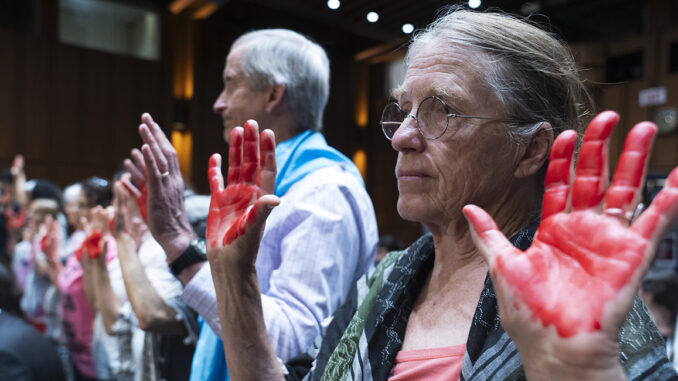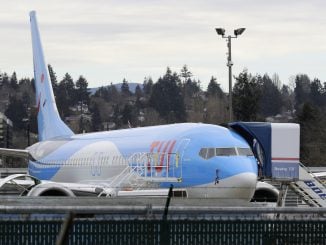
Last week, federal prosecutors gave Boeing the choice of entering a guilty plea and paying a fine as part of its sentence or facing a trial on the felony criminal charge of conspiracy to defraud the United States.
The plea deal, which still must receive the approval of a federal judge to take effect, calls for Boeing to pay an additional $243.6 million fine. That was the same amount it paid under the 2021 settlement that the Justice Department said the company breached. An independent monitor will oversee Boeing’s safety and quality procedures for three years. The deal also requires Boeing to invest at least $455 million in compliance and safety programs.
It covers only wrongdoing by Boeing before the crashes in Indonesia and Ethiopia, which killed all 346 passengers and crew members aboard two new Max jets. A Justice Department official said it does not give Boeing immunity for other incidents, including a panel that blew off a Max jetliner during an Alaska Airlines flight over Oregon in January.
In a filing Sunday night, the Justice Department said it expected to submit the written plea agreement with a U.S. District Court in Texas by July 19. Lawyers for some of the relatives of those who died in the two crashes have said they will ask the judge to reject the agreement.
“This sweetheart deal fails to recognize that because of Boeing’s conspiracy, 346 people died. Through crafty lawyering between Boeing and DOJ, the deadly consequences of Boeing’s crime are being hidden,” said Paul Cassell, a lawyer for some of the families.
U.S. District Judge Reed O’Connor, who has overseen the case from the beginning, has criticized what he called “Boeing’s egregious criminal conduct.” O’Connor could accept the plea and the sentence that prosecutors offered with it or reject the agreement, likely leading to new negotiations between the Justice Department and Boeing.
The case goes back to the crashes in Indonesia and Ethiopia. The Lion Air pilots in the first crash did not know about flight-control software that could push the nose of the plane down without their input. The pilots for Ethiopian Airlines knew about it but could not control the plane when the software activated based on information from a faulty sensor.
The Justice Department charged Boeing in 2021 with deceiving FAA regulators about the software not existing in older 737s and how much training pilots would need to fly the plane safely. However, the department agreed not to prosecute Boeing if the company paid a $2.5 billion settlement, including the $243.6 million fine, and took steps to comply with anti-fraud laws for three years.
Boeing, which blamed two low-level employees for misleading the regulators, tried to put the crashes behind. After grounding Max jets for 20 months, regulators let them fly again after the company reduced the power of the flight software. Max jets logged thousands of safe flights, and orders from airlines picked up, increasing to about 750 in 2021, 700 more in 2022 and nearly 1,000 in 2023.
That changed in January when a panel covering an unused emergency exit blew off a 737 Max during an Alaska Airlines flight over Oregon. Pilots landed the 737 Max safely, and no one was seriously injured, but the incident led to closer scrutiny of the company. The Justice Department opened a new investigation, the FBI told passengers on the Alaska plane that they might be victims of a crime, and the FAA said it was stepping up oversight of Boeing.
According to some legal experts, a criminal conviction could jeopardize Boeing’s status as a federal contractor. The plea announced Sunday does not address that question, leaving it to each government agency whether to bar Boeing.
The Air Force cited “compelling national interest” in letting Boeing continue competing for contracts after the company paid a $615 million fine in 2006 to settle criminal and civil charges, including that it used information stolen from a rival to win a space-launch contract.
Relatives of the Max crash victims have pushed for a criminal trial that might illuminate what people inside Boeing knew about deceiving the FAA. They also want the Justice Department to prosecute top Boeing officials, not just the company.
“Boeing has paid fines many a time, and it doesn’t seem to make any change,” said Ike Riffel of Redding, California, whose sons Melvin and Bennett died in the Ethiopian Airlines crash. “When people start going to prison, you will see a change.”

